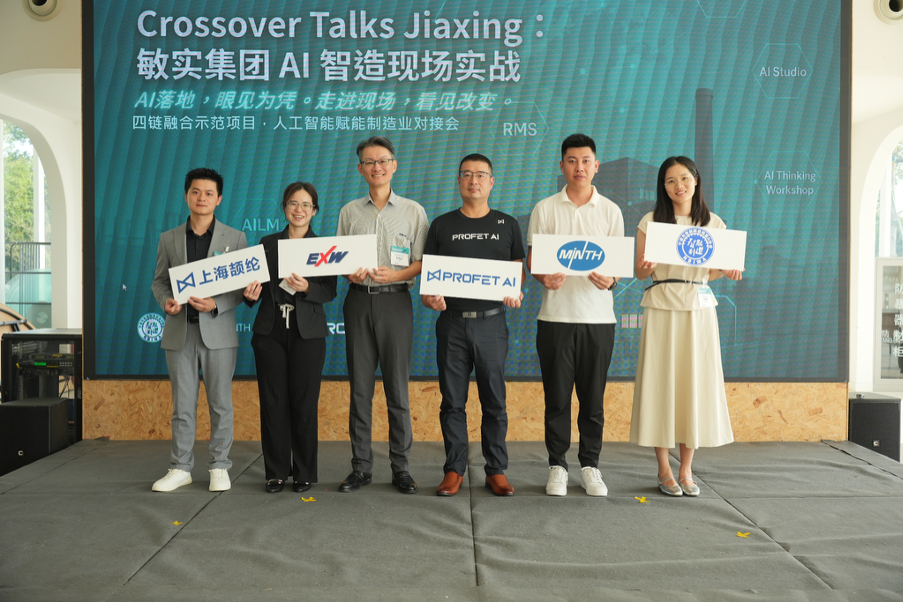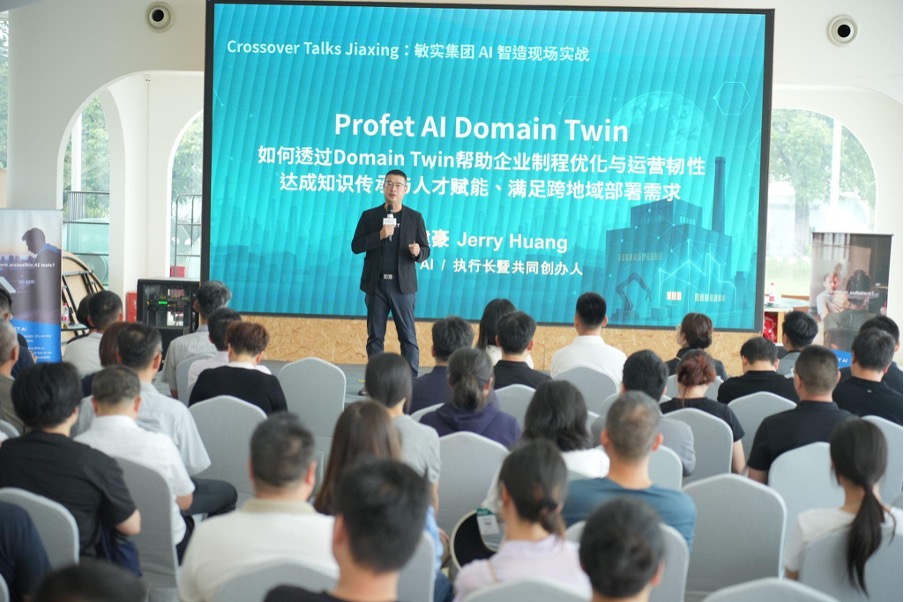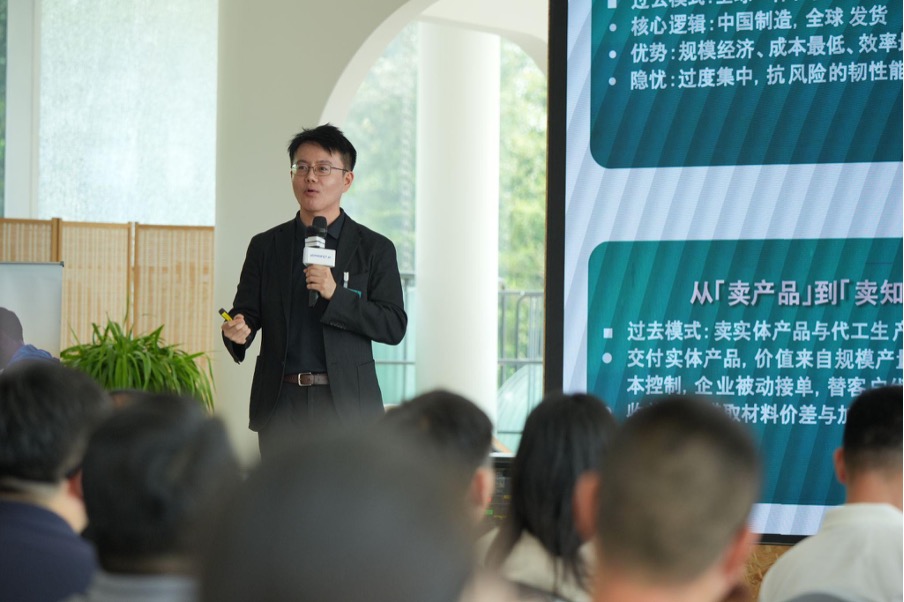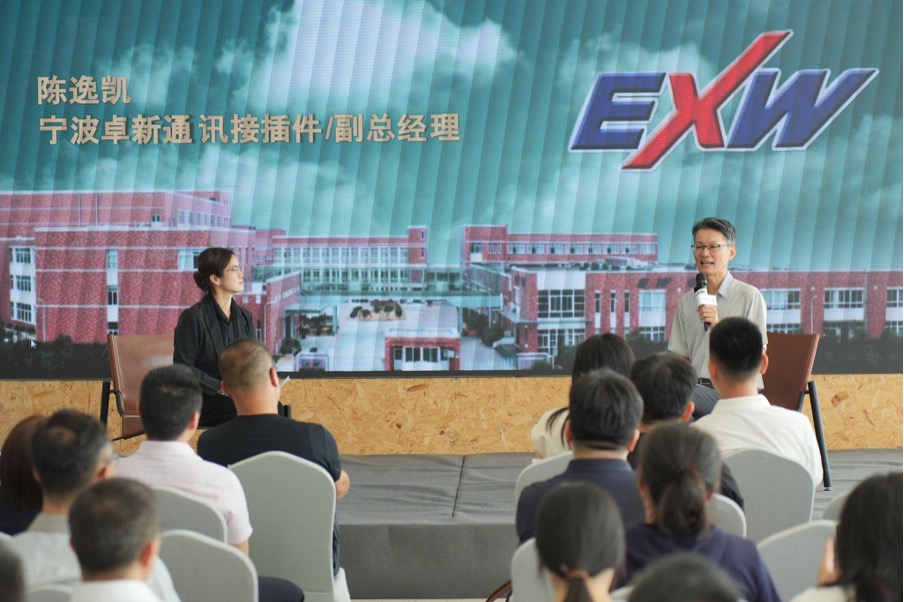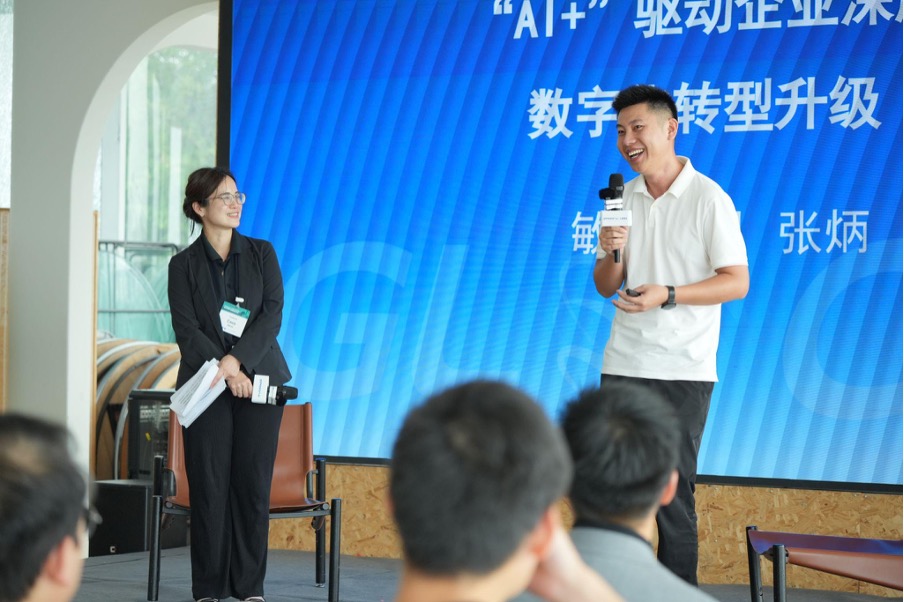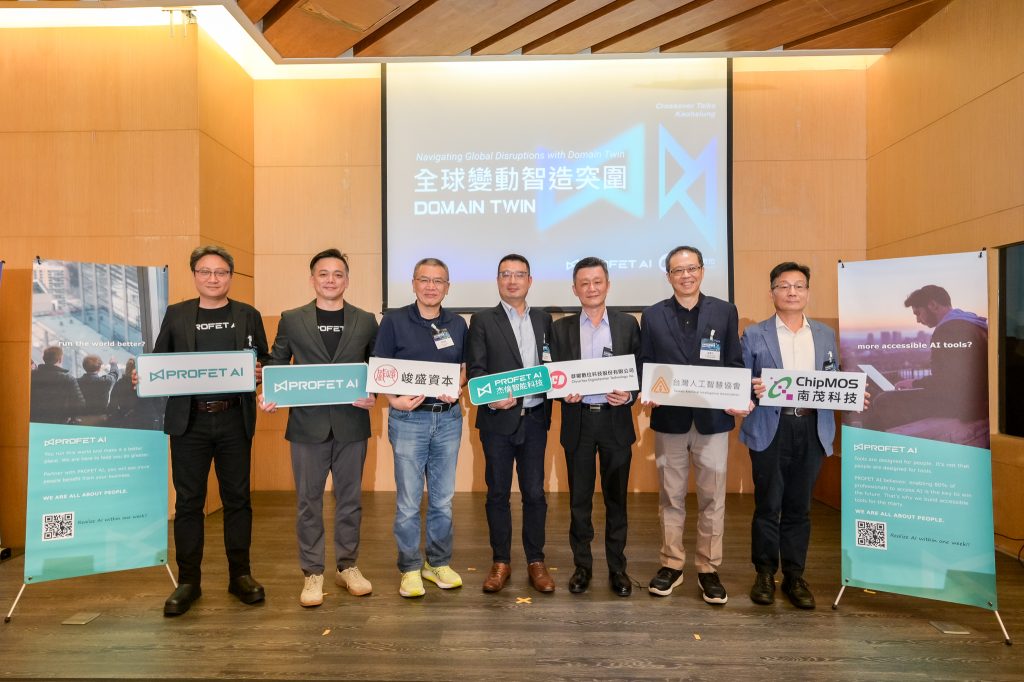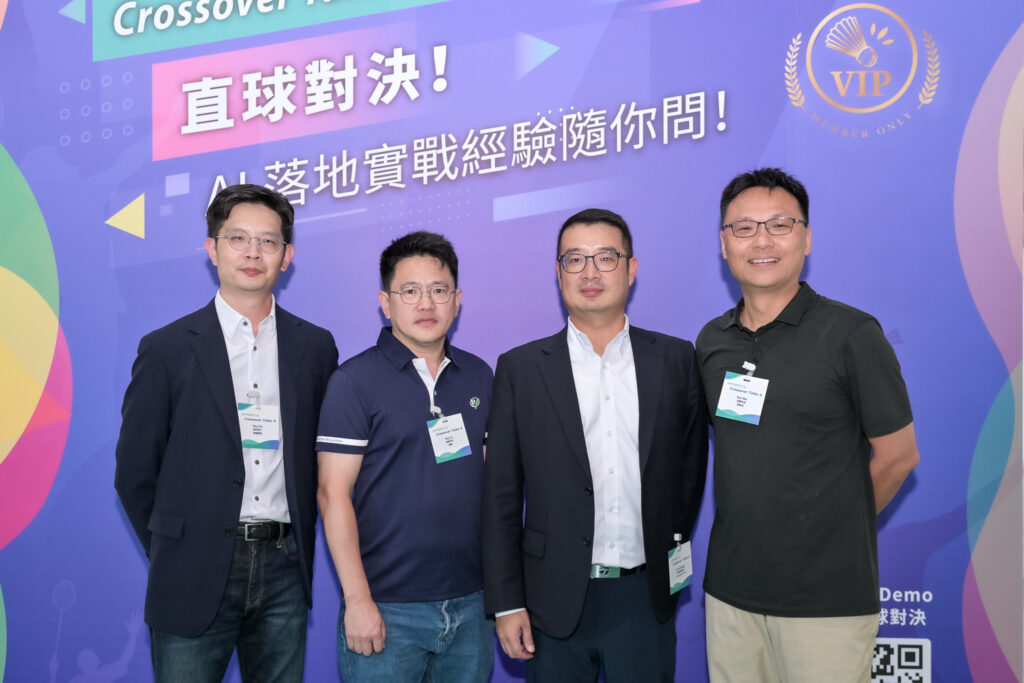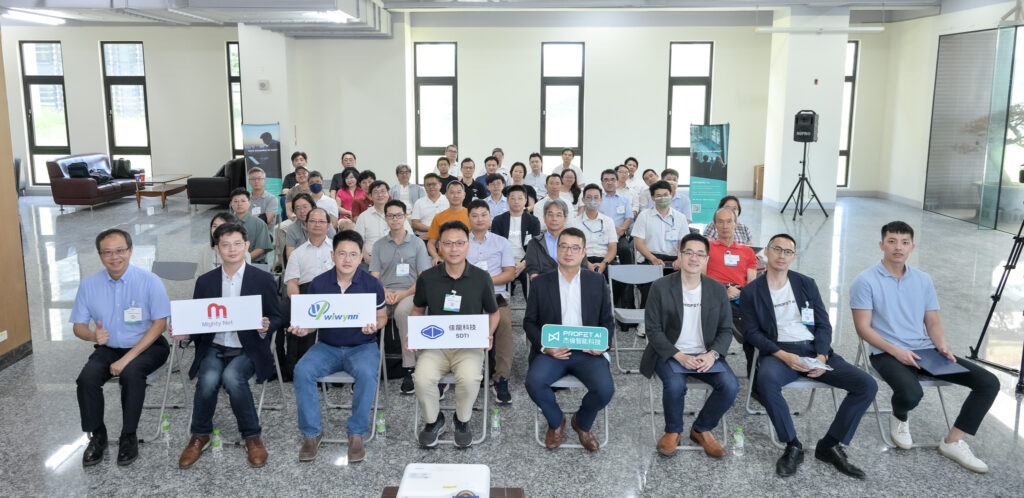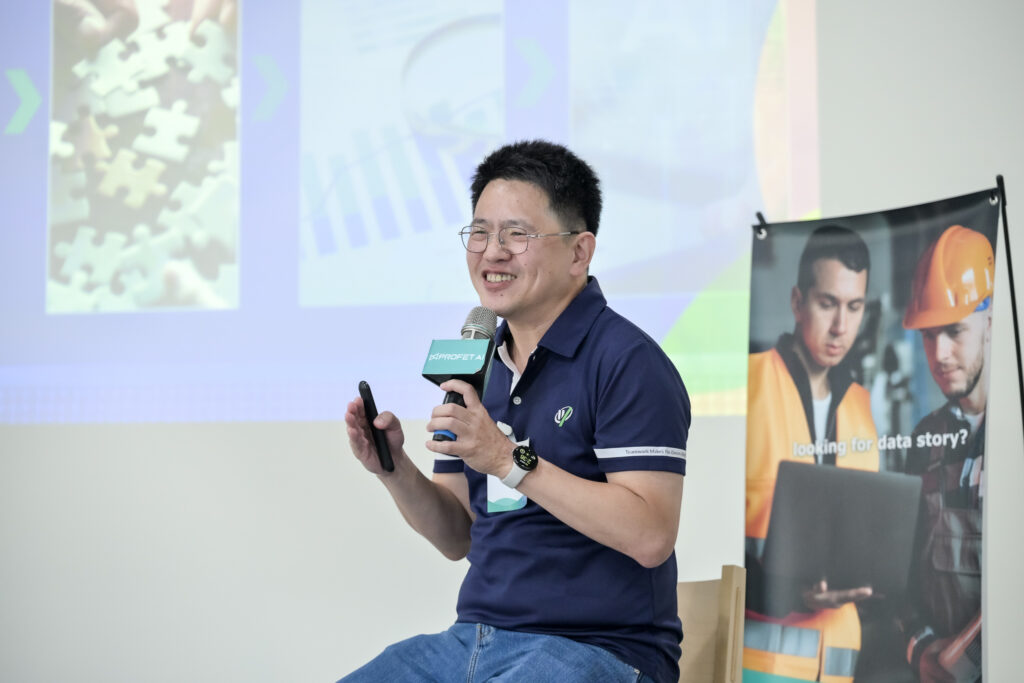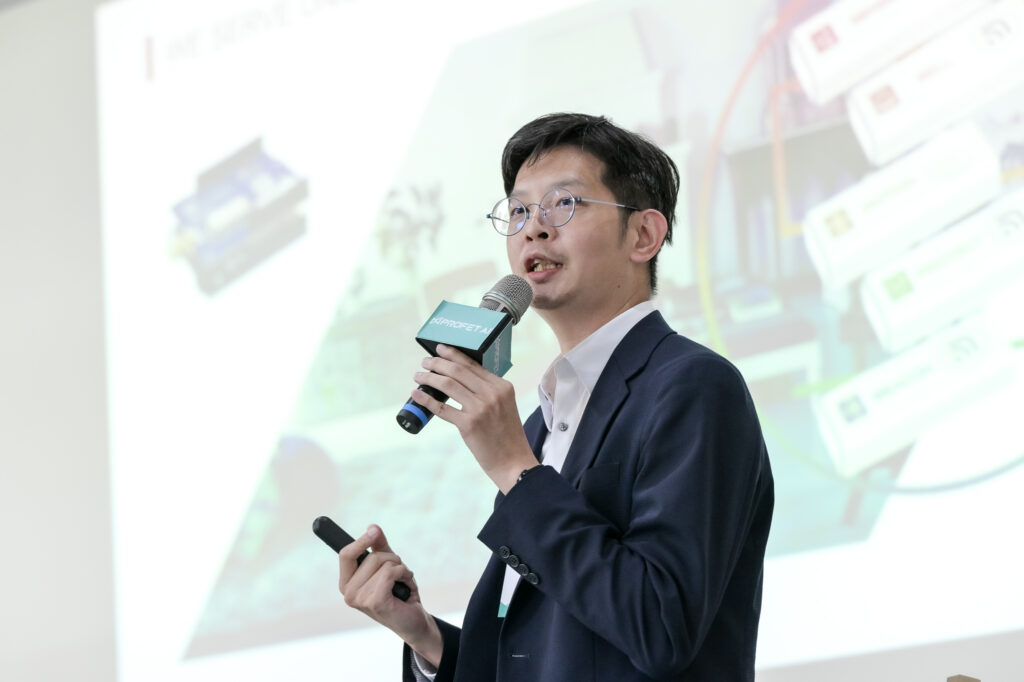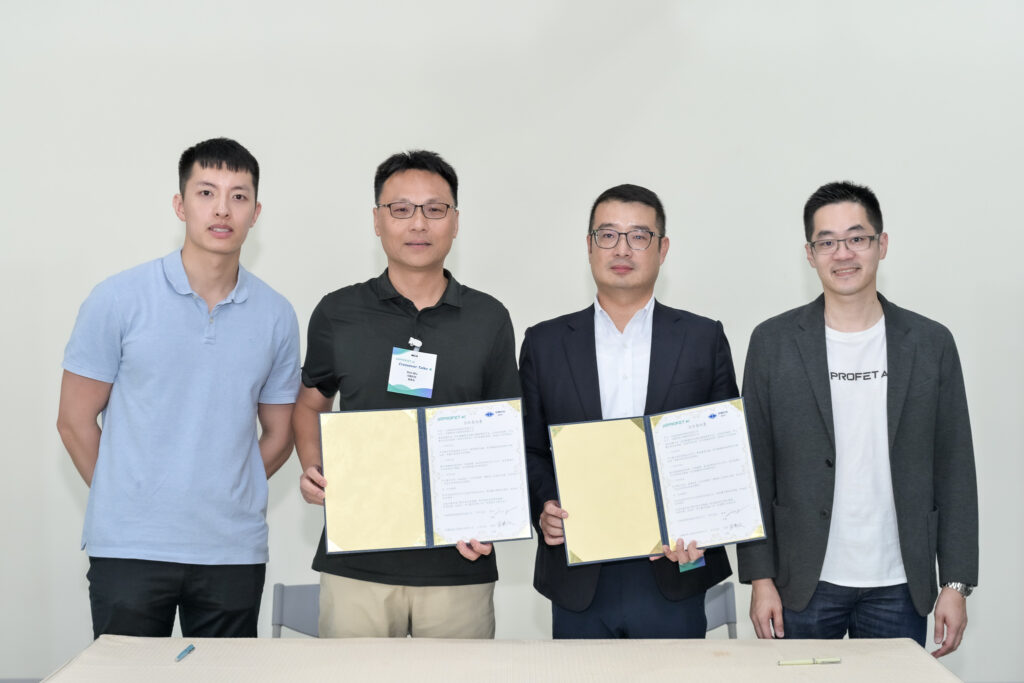Crossover Talks Bangkok: How Real-World AI Projects Deliver Measurable ROI for International Businesses
Crossover Talks Bangkok: How Real-World AI Projects Deliver Measurable ROI for International Businesses
In recent years, artificial intelligence (AI) has dominated headlines, but the real question for most business leaders remains: “Can AI truly improve my bottom line—whether through revenue growth or cost reduction?”
Take Thailand’s manufacturing sector as an example. Recent surveys show that only 17% of companies have deployed AI projects that directly improve performance. The majority are still in the planning stage, while some have yet to begin. This situation is strikingly similar to Taiwan—where most executives agree that AI is important, but face the same challenges: identifying the right use cases, proving ROI, and lacking the internal talent to lead adoption.
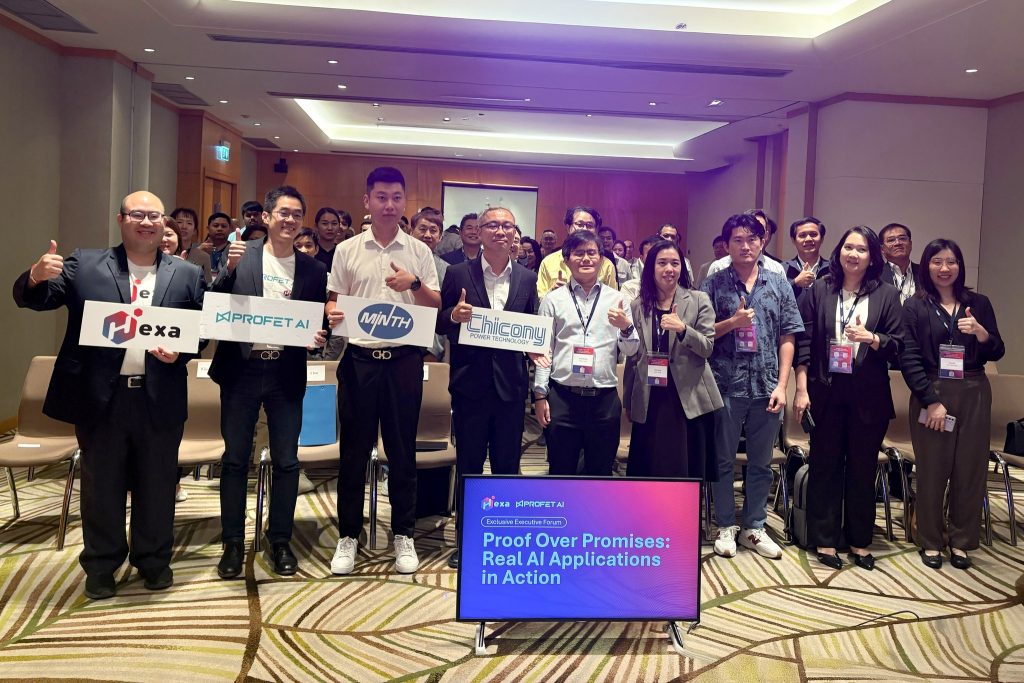
The Winning Formula: People × Business × Technology
At a recent AI applications seminar in Bangkok, Profet AI and HexaTech Solutions emphasized a clear message: successful AI adoption is not just about technology—it’s about combining domain expertise, organizational readiness, and the right AI tools.
Profet AI is Asia’s leading no-code AutoML platform for manufacturers, with 300+ enterprise clients across 20 industries, including over half of Nvidia’s manufacturing partners in Asia. Its greatest advantage is enabling non-IT professionals—such as production engineers—to build AI models in just 3 hours, often achieving measurable ROI within 90 days.
In our panel discussion, two international companies shared how AI adoption has proven to bring real results to their organization:
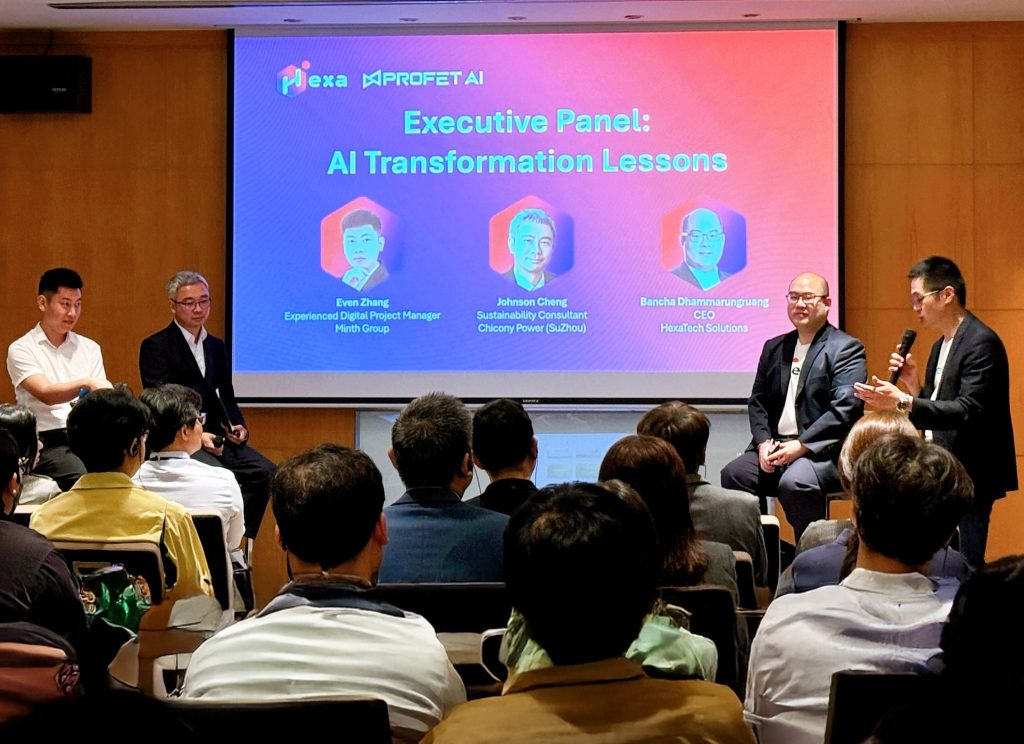
Case Study 1: Minth Group — Reducing High Defect Rates with AI
Minth Group, a global automotive parts supplier, faced a serious quality challenge. Defect rates in its automotive trim bending process reached 40–47%, slowing down production and requiring massive manpower for inspection and rework.
By adopting Profet AI’s no-code platform, Minth trained over 800 employees to build models themselves. Importantly, these were not data scientists, but frontline process engineers. Using AI, they analyzed thousands of variables—such as material strength, equipment alignment, and environmental factors—to pinpoint the root causes behind the high defect rate.
The results were impressive: in the first phase alone, Minth saved RMB 5.9M (USD 820K) annually, with potential to scale to RMB 14.74M across more operations. Beyond financial gains, the company also cultivated 38 internal AI champions, who have since launched over ten new projects—laying the foundation for long-term, replicable improvements.
Case Study 2: Chicony Power — Smarter Energy Optimization
Chicony Power, one of Taiwan’s top three power supply manufacturers, approached AI from a different angle: energy efficiency. In its factories, large chiller systems consumed enormous amounts of electricity, and scheduling decisions relied solely on engineers’ experience. Managing multiple chillers, pumps, and cooling towers manually was complex, error-prone, and often inefficient.
With Profet AI, Chicony built two interconnected models:
- Load forecasting—predicting cooling demand by combining weather data with production schedules
- Energy optimization—determining the most efficient equipment combinations and providing real-time recommendations
This system delivered 3–15% energy savings under different operating conditions. At Chicony’s scale, even small percentage gains translate into substantial cost reductions. In addition, the AI system provides early equipment warnings, preventing costly downtime, and reduces risks caused by human error—making energy management smarter and more resilient.
From Quick Wins to Enterprise Transformation
HexaTech CEO Bancha (Beam) Dhammarungruang highlighted that success begins with quick-win projects that demonstrate measurable impact, which can then be scaled across the enterprise. HexaTech’s six-step approach includes: mapping processes, prioritizing opportunities, identifying key parameters, building models, testing, and integrating with existing ERP/CRM/MES systems.
“Many think AI success depends on algorithms alone. In reality, it’s about the right combination of business priorities, talent readiness, and technology fit. Only then can AI be turned into real cash flow—from cost savings to new revenue opportunities.”
— Bancha
Lessons FromTaiwan’s Industry
Thailand’s current challenges mirror what Taiwan faced a decade ago: labor shortages, an aging workforce, and a skills gap among younger employees. AI is not only a productivity tool—it’s also a way to capture and scale expert knowledge for the next generation.
As the case studies show, the most successful AI projects share common traits:
- Targeting clear business pain points
- Combining domain knowledge with AI expertise
- Embedding into daily workflows, not just running pilots
- Developing workforce capabilities to sustain adoption
For Taiwan, moving from “trying AI” to enterprise-wide transformation requires leaders to focus less on the hype and more on embedding AI into core business strategies. Done right, AI won’t just be a buzzword—it will deliver tangible, measurable, and lasting value across manufacturing, F&B, retail, and beyond.
Want to learn how Profet AI helps manufacturers achieve fast, measurable results? Fill out the form below.
